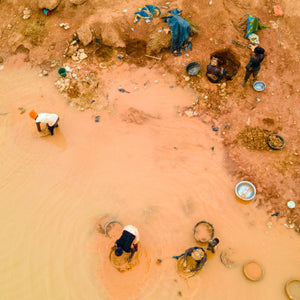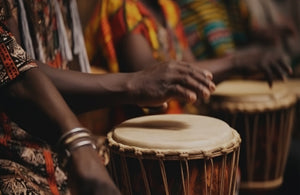The Main Causes of Poverty in Africa
In 2019, 445 million people across Africa lived below the poverty line. That’s a staggering 34% of Africa’s entire population. When the COVID-19 pandemic broke out in 2020, a further 30 million Africans fell into extreme poverty, living on less than US$1.90 a day.
It’s a devastating fact that poverty in Africa is an issue that continues to plague the continent, deeply affecting the livelihoods of its citizens. Understanding the underlying factors causing this problem is essential for finding solutions to reduce and ultimately eliminate it.
We explored some of the main causes of poverty in African countries to best provide useful insights into how we might help combat it. By shining light on these issues, together we can foster meaningful conversations about strategies for fighting poverty in Africa. Not only as individuals, but as a community or society at large.
Structural inequality and lack of access to resources
One of the most prevalent causes of poverty in Africa is structural inequality and lack of access to resources. Structural inequality refers to the systematic and institutionalized barriers that prevent certain groups from accessing resources and opportunities. Often perpetuated by corrupt governments and institutions, this can include discriminatory policies, unequal distribution of resources, and limited access to education and healthcare.

Lack of access to resources such as land, water, and credit also reinforces poverty and perpetuates inequality. The combination of these factors results in a poverty trap, where individuals and communities struggle to break free from the cycle of poverty. Addressing these root causes of poverty requires sustained efforts to promote social justice, equitable resource distribution, and inclusive economic growth.
The impact of colonialism
Colonialism has had a devastating effect on African economies, drastically destabilizing communities and remaining a significant cause of poverty in Africa to this day. From the late 19th century to the mid-20th century, European powers established colonies and exerted political, economic, and cultural control over much of Africa. These colonial powers controlled resources, enforced their own laws and customs, and exploited African labor and land for their own gain.

Colonialism in Africa had significant and lasting impacts on the continent, including the displacement of local populations, the exploitation of resources, and the imposition of foreign customs and values. It also disrupted local economies and political structures, often exacerbating poverty and inequality.
Many African countries gained independence from their colonial rulers in the mid-20th century, but the legacy of colonialism continues to shape social, economic, and political realities in Africa today.
Poor infrastructure and government corruption
Another significant cause of poverty in Africa is poor infrastructure, which is perpetuated by persistent government corruption.
Infrastructure refers to the basic physical and organizational structures needed for the functioning of society, including transportation, communication, water supply, and energy systems. When infrastructure is weak or inadequate, it can limit economic growth, social development, and access to essential services, perpetuating a cycle of poverty.
Across Africa, basic infrastructure including electricity, water supply and transportation are either not available or inaccessible. 51.8% of the population of sub-Saharan Africa do not have access to electricity. In countries including Burundi, Chad, Malawi and South Sudan, that number is over 85%.
The lack of infrastructure in Africa is often a result of inadequate investment, limited resources, and political instability. Political corruption further diverts resources from those who need it most, creating an unequal playing field that makes it almost impossible for citizens living in poverty to gain any kind of financial security.
Addressing weak infrastructure requires sustained investment in infrastructure development, as well as addressing the underlying causes of poverty, such as inequality and inadequate/corrupt governance.
Climate change in Africa
Climate change has had a devastating impact on communities across the continent, drastically altering livelihoods and becoming a leading cause of poverty in Africa. The region is particularly vulnerable to the impacts of climate change due to its reliance on rain-fed agriculture, limited infrastructure, and high rates of poverty.
Climate change is causing more frequent and severe droughts, floods, and other extreme weather events, which can lead to water scarcity, crop failures and the displacement of people. In fact, 86 million Africans may be forced to migrate within their own countries as a result of climate change by 2050.
Addressing the impacts of climate change requires a multi-faceted approach that addresses both the root causes and impacts of climate change. This includes reducing greenhouse gas emissions, promoting sustainable land-use practices, and investing in climate adaptation strategies such as resilient infrastructure, early warning systems, and social protection programs.
Conflict and civil wars in Africa
Conflict is one of the main causes of poverty in Africa, and for decades, it sadly has become a core part of life in many African countries. From Sudan to the Democratic Republic of the Congo, African citizens are enduring the burden of displacement, loss of life and diminishing economic resources caused by warring factions that refuse to lay down arms.

High unemployment rates and an unstable political landscape contribute to this devastating cycle which has deep roots in colonialism, resource extraction and imperialism. If we are truly committed to helping those suffering from poverty in Africa, it’s vital for us to acknowledge the role these external forces play in undermining peacebuilding initiatives in these regions.
How we can tackle the main causes of poverty in Africa
The causes of poverty in Africa are complex and interconnected. No single factor can explain why poverty persists in Africa, but the legacy of colonialism, lack of resources, government corruption and civil unrest have all played a role in maintaining an unequal playing field.
In spite of these difficulties, African nations are beginning to make real advances in providing access to basic needs for their citizens. External organizations and charity initiatives are also helping make a difference to communities across the continent.
As we look at the future, international partnerships and effective policies will be vital to mitigating poverty and ensuring that all citizens can lead safe, secure lives. This is why it's up to us to lend our voices and support for efforts that advocate for greater accountability from governments and work toward tackling inequality both here in Africa and across the world.


